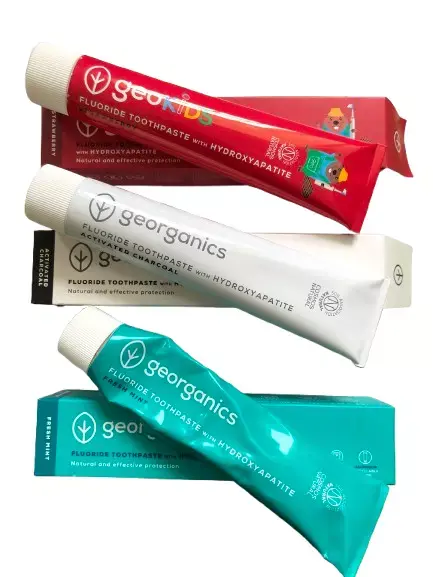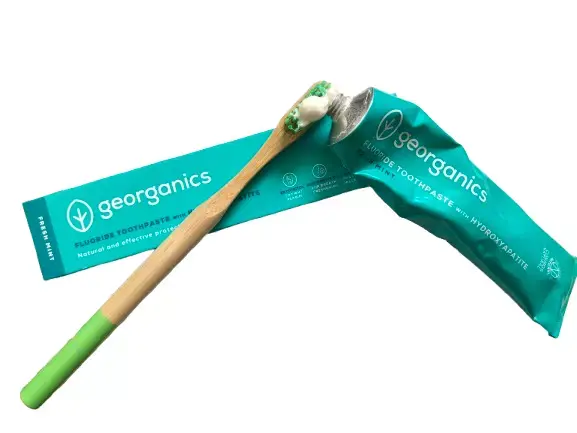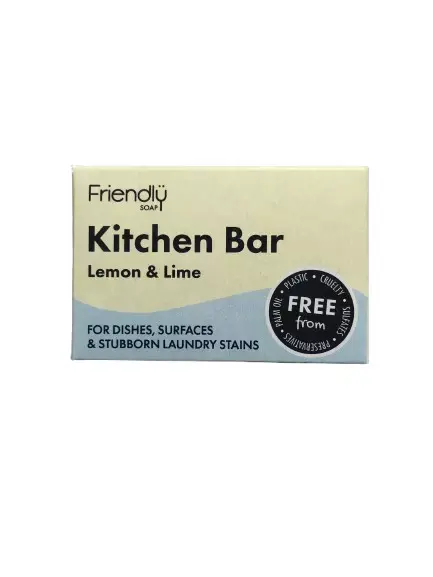
Wash away any environmental concerns with this simple handmade soap. No plastic packaging and palm oil free. Perfect for use as either a hand wash by the sink or a body soap for the shower. With the tang of citrus fruits orange and grapefruit, use this soap in the shower to give you the zest you need to wake up and start the day… as well as reminding you that you haven’t eaten breakfast yet, as a whiff of this soap will make you really fancy some orange juice. 95g. For best results keep it in a soap dish to let it dry out between uses.
Orange and Grapefruit Soap
Plastic hand wash bottles and bar soap that always comes packaged in plastic. (Even if you think you’ve found one just in cardboard, the soap inside still has a plastic wrapper on. Much frustration.)
No plastic packaging! Just a cardboard box. It also contains no palm oil, and has only a few ingredients unlike most mass-produced soap. Why do you need a list of 20 odd ingredients for soap? You don’t. It’s ridiculous. Much better for your skin this way.
You can buy handmade soap with no packaging in quite a few places, soap making as a hobby and therefore a business is on the rise. Unfortunately, it tends to be really expensive. In my research for a soap company that didn’t charge extortionate prices, I found that the average price of a bar of handmade soap tended to be around £3.95. Don’t get me wrong it’s all beautifully handcrafted, but as it is mainly marketed as a luxury item, I imagine that they sell well as gifts more than anything. I wanted to find a company that made soap that was more affordable for everyday use …and didn’t use palm oil.* Then I found the Friendly Soap Company, which proudly has no palm oil in its products and at £2.95 a bar is definitely one of the best-priced options.
*That was hard work. Palm oil is in everything, try looking at the soap in the supermarket and find me one without palm oil. Even the handmade soap makers chuck it in. Palm oil is bad. Even ‘responsibly sourced’ palm oil doesn’t really cut it, as the certifications are not really regulated yet. Forest fires that burnt for months in 2015 in Indonesia were partly due to palm oil plantations, as the farmers engage in slash and burn tactics to grow new crops, which obviously gets out of hand. These fires are happening more and more frequently, destroying the precious rainforests and endangering animals such as orangutans.
What is the soap made from?
Ingredients: Sodium olivate, Sodium cocoate, Aqua, Butyrospermum parkii butter, Citrus aurantium dulcis (orange) essential oil contains limonene, Citrus grandis (grapefruit) Oil contains limonene, Capsicum frutescens (cayenne pepper) powder
That’s it. 7 ingredients, one of which is water. If that’s not pure and natural I don’t know what is. Keeping clean doesn’t have to be complicated after all.
Where does the soap come from?
Made in the UK.
Is it sustainable and environmentally friendly?
Olive Oil does have some environmental issues within its production, mainly due to intensive farming methods. However, a lot of olive oil farming is still done by small scale farmers using traditional methods, which is much better environmentally.
Coconut oil - seems to be ok, not much info I can find for now.
Shea butter is great. It is a very sustainable and environmentally friendly in production, because it does not grow in plantations, (it is therefore wild) and has no need for irrigation or pesticides. Unrefined shea butter is best.
Oranges - In terms of the farming of this fruit, citrus plantations tend to be managed nowadays as an intensive monoculture, (although a lot of crops are famed this way now, bring back crop rotation!) which causes soil erosion. This type of farming while effective for crop growing, has caused problems with the land and has even led to over-production (wasted food). The making of orange oil is not environmentally damaging as essential oil production generally uses steam distillation which has no environmental concerns, but it takes a lot of plant to make only a small amount of essential oil.
Grapefruit – An accidental hybrid between oranges and pomelos rather than a naturally occurring fruit. It is called ‘grape’ fruit because it grows in groups like grapes do. China grows the most grapefruit, followed by the US and Mexico. Grapefruit can be grown organically, but as with most organic produce, it only makes up a small percent of the market currently, although demand for organic produce is growing. The oil is made by cold pressing the rind, which is the least energy intensive method of extracting oil generally.
Cayenne Pepper - in powder form, it can actually be a blend of different chilli peppers, but mostly of the cayenne variety. Originally cultivated in South America, it is now grown widely throughout various parts of the world that are tropical/sub-tropical. Cayenne pepper has a range of traditional uses, that doesn’t always necessarily involve eating them, such as its use as a remedy for joint pain, as when rubbed onto the skin as it acts as a ‘counterirritant’ to distract from the original source of pain. (…Bit of a stretch to call that masochistic solution to pain management a remedy though, I’d stick to eating them instead) In terms of the sustainability of growing these chillies, I can’t find any info really, so I’ll assume there isn’t anything massively unsustainable about cayenne peppers for now.
How about ethical?
Made in the UK by a small handmade soap business, so ethically we are all good here.
Extra good stuff:
Vegan, not tested on animals, free from palm oil and known skin irritants such as Sodium Lauryl Sulphate’s (foaming agent) and parabens (preservatives).
Conclusion –
Soap with no plastic, palm oil and good ingredients? What more could you want!































